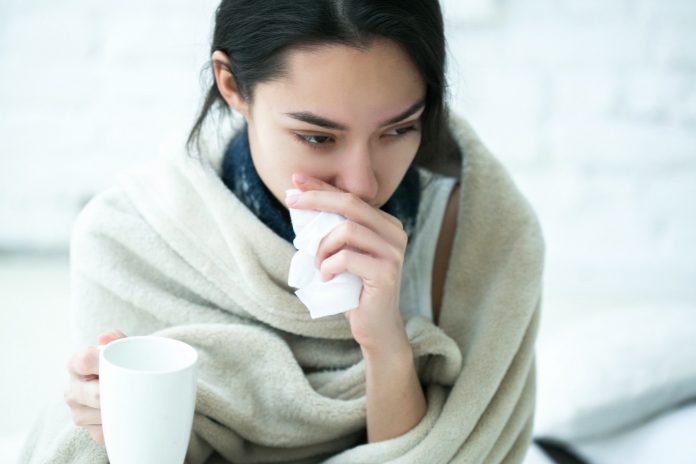As winter sets in, temperatures drop, and the air gets drier, airways can become irritated, resulting in coughing, wheezing and shortness of breath.[1]
“People spend more time in enclosed spaces and often near each other, increasing the transmission of infection,” said Dr Vincent Candrawinata, founder of Renovatio Bioscience. “Low humidity in winter also gives extra time for the virus to remain in the air.”
These factors can contribute to an increased risk of respiratory infections.
Infections can also create exacerbation of symptoms for those with existing respiratory conditions, such as asthma, allergies and COPD.
Dr Candrawinata says those vulnerable to infection include people with a low immune response or compromised immunity, children, the elderly and those who work in contact with a lot of people; increasing exposure towards viruses, while smoking and vaping also increase the risks.
Common respiratory infections
Both colds and flu are caused by viruses, resulting in symptoms that include sneezing, cough, runny nose, scratchy throat, fatigue, chills, aches and fever. However, the flu is usually more severe.
COVID-19 symptoms are very similar symptoms to those of the flu, although some people may have no symptoms. Recovery from COVID-19 can take up to two weeks for mild cases or six weeks or more for severe cases.
John Hopkins Medicine in the US reports that vaccines are highly effective at protecting against severe consequences of influenza and COVID-19.2
Bronchitis symptoms include a persistent cough, while pneumonia can produce mild symptoms of a mucus cough and more serious symptoms of a sharp stabbing pain in the chest and shortness of breath.3
Management of respiratory infections
Professor Brian Oliver from Australia’s Woolcock Institute of Medical Research says that for all these conditions, OTC medications such as decongestants, cough lozenges and pain relief can assist with symptoms.4
“Alternative therapies might work, but there’s not a lot of evidence for these,” he said.
Patients should be referred to their GP or other healthcare provider if symptoms are severe, don’t improve or worsen.
The causes of these infections can be from viruses or through inhaled bacteria. Dr Candrawinata says rest and hydration are keys to managing infections.
“When dealing with viral infections, antibiotics don’t work,” he said. “In severe cases, antiviral medications may be prescribed by the doctor to reduce duration, severity, and risk of complications.”
Prevention
Maintaining a healthy lifestyle is the foundation of keeping our body and immune system healthy and well, says Dr Candrawinata.
“Washing our hands regularly, using hand sanitiser, and coughing or sneezing into our elbows, are effective in preventing the transmission of viruses,” he said.
Role of pharmacists
Professor Oliver said: “I would like to see more collaboration between pharmacists and GPs to manage patients around the appropriateness of medications, allowing pharmacists to prescribe respiratory medications where needed and with appropriate training. There’s also a role in the diagnosis of viral infections – lots of dipstick-type tests are available now, and there are specific antivirals available. COVID tests are the ones most widely available, but similar tests exist for influenza and RSV, and one test for all three.5
Dr Andrew Bradbeer, Respiratory Specialist at Manse Medical in Victoria, said: “Pharmacists can often identify when patients with chronic lung problems don’t have an action plan to escalate in the event of a respiratory infection. They’re also well positioned to notice red flags [indicating] that they need to see a specialist – for example when patients with COPD or asthma are coming in to buy lots of Ventolin or salbutamol inhalers but aren’t using other prevention medications.
“It’s very helpful if outcomes of pharmacist medication reviews are communicated directly to the specialist as well as the patient’s GP.”
References:
- lung.org/clean-air/emergencies-and-natural-disasters/winter-weather#:~:text=The%20cold%2C%20dry%20air%20can,and%20breathe%20through%20your%20nose.
- hopkinsmedicine.org/health/conditions-and-diseases/coronavirus/flu-prevention-and-coronavirus-infographic
- nutrition.bmj.com/content/3/2/403
- nlm.nih.gov/pmc/articles/PMC7542326/
- journals.plos.org/plosone/article?id=10.1371/journal.pone.027251
This Health Series feature was originally published in the May issue of Retail Pharmacy magazine.








